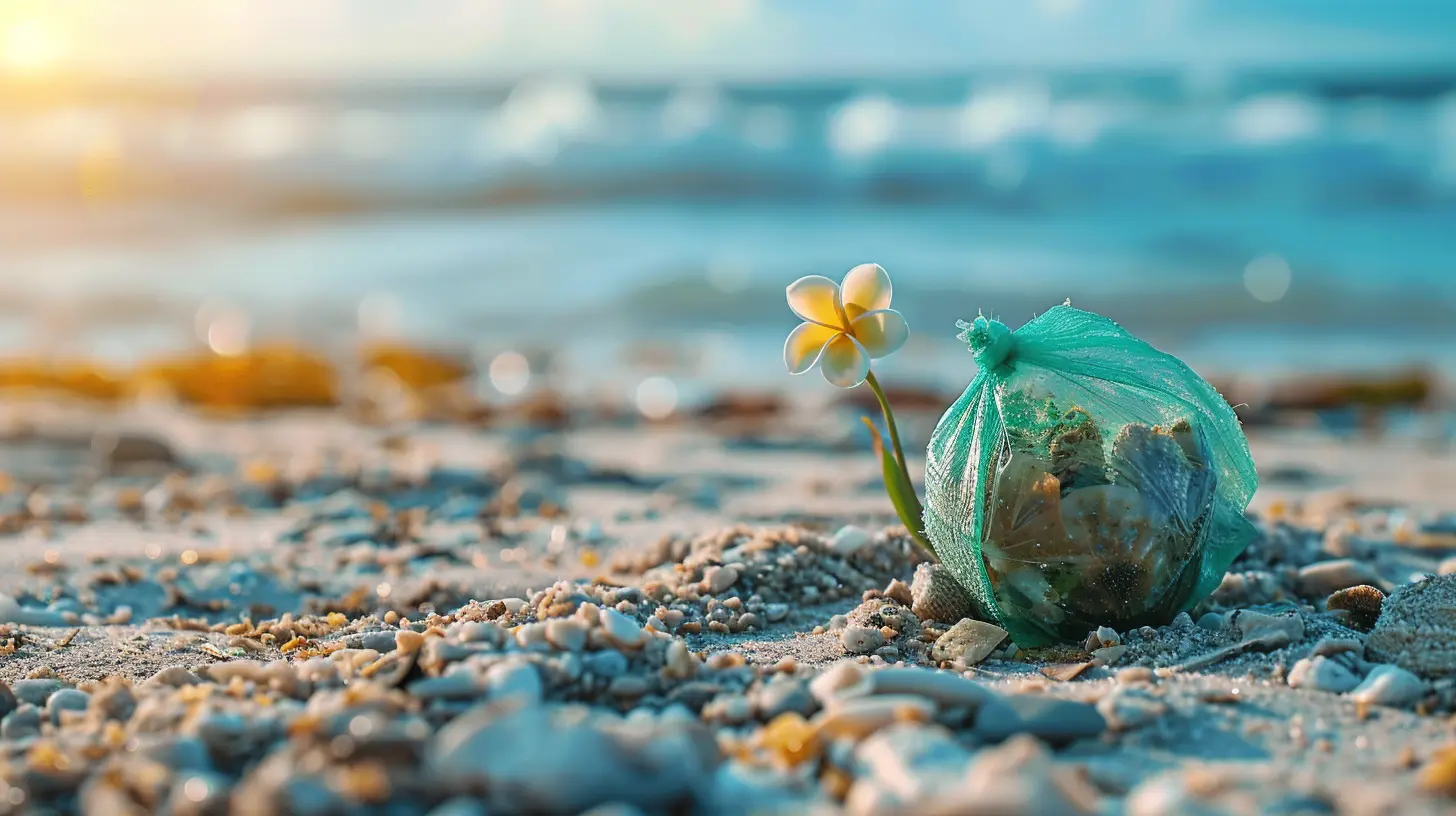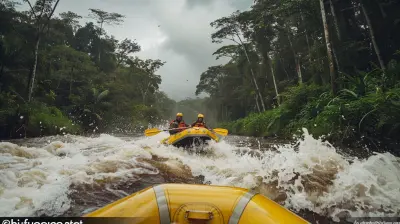Zero Waste Travel: A Beginner’s Guide to Going Green on the Go
25 August 2025
Traveling is one of life’s greatest joys, but let’s be real—it can be wasteful. From single-use plastics on airplanes to the tiny shampoo bottles in hotels, the waste adds up fast. The good news? You don’t have to give up your love for adventure to be kinder to the planet.
Zero waste travel is all about making conscious choices to minimize waste while still enjoying your trip. Whether you're a seasoned traveler or just starting out, this guide will help you embrace sustainable travel without the stress. Ready to go green on the go? Let’s dive in!

What Is Zero Waste Travel?
In simple terms, zero waste travel means reducing the amount of trash you create while traveling. It’s about swapping out wasteful habits for sustainable ones—like choosing reusable items over disposables, supporting eco-friendly accommodations, and being mindful of your carbon footprint.While achieving absolute zero waste may be tricky (we’re not perfect, after all), the goal is to reduce waste as much as possible. Every small effort counts!

Why Zero Waste Travel Matters
Think about it: Every flight you take, every meal you eat on the go, and every plastic water bottle you grab contributes to global waste. According to research, the tourism industry generates millions of tons of waste each year, much of which ends up in landfills or the ocean.By traveling more sustainably, you can:
- Reduce plastic pollution – Avoiding single-use plastics helps keep our beaches, oceans, and cities cleaner.
- Lower your carbon footprint – Conscious travel choices can help reduce emissions and energy consumption.
- Support ethical tourism – Spending your money on eco-friendly businesses helps drive sustainable tourism forward.

How to Travel Zero Waste Like a Pro
Now that you know why it matters, let’s get practical. Here’s how you can embrace zero waste travel without making it feel like a chore.1. Pack Smart: Bring Reusable Essentials
The best way to minimize waste is to be prepared. A solid zero waste travel kit includes:- Reusable water bottle – Staying hydrated without relying on plastic bottles is a game-changer.
- Collapsible coffee cup – If you can’t live without your daily caffeine fix, a foldable cup saves tons of disposable cups.
- Bamboo cutlery & straw – Avoid single-use utensils by bringing your own lightweight set.
- Reusable shopping bag – Perfect for groceries, souvenirs, and avoiding unnecessary plastic bags.
- Silicone food containers & beeswax wraps – Great for storing snacks or leftovers without relying on plastic wrap.
- Solid toiletries – Swap out liquid shampoo, conditioner, and soap for solid bars to cut down on plastic packaging.
Having these essentials means you can say "no thanks" to single-use plastics with ease.
2. Choose Sustainable Transportation
Flying is often the biggest contributor to your travel carbon footprint. While avoiding flights completely isn’t always possible, you can make more eco-friendly choices:- Take direct flights – They use less fuel than connecting flights.
- Opt for trains, buses, or carpooling – These options produce fewer emissions than flying.
- Use public transport or walk – Exploring a city on foot or by bike is not only greener but also more enjoyable.
For shorter distances, renting an electric vehicle or using shared transportation is another great way to reduce your impact.
3. Stay in Eco-Friendly Accommodations
Where you stay can make a huge difference. Look for hotels, hostels, or Airbnbs that prioritize sustainability. Some key things to check:- Eco-certifications – Does the accommodation have a green certification (like LEED, Green Key, or EarthCheck)?
- Water & energy conservation – Do they use solar power, recycle water, or encourage towel and linen reuse?
- Plastic-free initiatives – Are there refillable toiletries instead of mini plastic bottles?
- Local & sustainable food – Do they source ingredients from local farmers or offer plant-based meal options?
If you’re into camping, go for “leave no trace” principles—pack out what you bring in and minimize your impact on nature.
4. Eat & Drink the Zero Waste Way
Food waste and packaging are major contributors to travel waste. Here’s how to enjoy local cuisine without a pile of trash:- Say no to plastic packaging – Choose fresh, unpackaged foods where possible.
- Bring your own container – Perfect for takeout meals or street food.
- Dine in instead of taking out – Eating at a restaurant reduces the need for disposable utensils and packaging.
- Visit local markets – They often have fresher, package-free food compared to big grocery chains.
- Go for plant-based – Eating less meat has a lower environmental impact.
Carrying snacks in a reusable container also helps avoid impulse buys that come in plastic wrapping.
5. Shop Responsibly & Avoid Souvenir Waste
It’s tempting to bring home souvenirs, but many are mass-produced and end up as clutter. Instead, consider:- Locally made, ethical gifts – Handmade crafts, fair-trade goods, or edible treats are great options.
- Experiences over things – Cooking classes, guided tours, or adventure activities create lasting memories.
- Minimalist souvenirs – Postcards, digital photos, or a journal entry can be just as meaningful.
If shopping is a must, support local artisans instead of mass-produced, plastic trinkets.
6. Be Mindful of Waste While Exploring
Zero waste travel isn’t just about avoiding trash—it’s also about respecting the places you visit. A few extra things to keep in mind:- Carry a small trash bag – If you create waste, dispose of it properly or pack it out.
- Follow local recycling rules – Some destinations sort waste differently, so check before tossing things out.
- Say no to freebies – Free hotel slippers, plastic-wrapped airline headphones—if you don’t need it, don’t take it.
- Pick up litter – If you see trash on a hike or beach, why not set an example and clean up?
Simple habits like these help keep destinations beautiful for future travelers.
7. Offset Your Carbon Footprint
Even with the best efforts, travel still has an impact. To balance things out, consider:- Carbon offset programs – Some airlines let you pay to offset emissions by funding renewable energy projects.
- Conserving energy – Turn off lights, unplug chargers, and use water responsibly in your accommodations.
- Supporting eco projects – Donate to reforestation programs or volunteer with conservation groups.
While offsets aren’t a perfect solution, they’re a step in the right direction.

Final Thoughts: Every Little Bit Counts
Zero waste travel doesn’t have to be overwhelming or expensive. It’s about taking small, conscious steps wherever you can. You don’t have to do it perfectly—just better than yesterday.With a little preparation and mindful choices, you can enjoy your adventures while leaving a lighter footprint. So go ahead—embrace the journey, skip the plastic, and make sustainable travel the norm, not the exception.
all images in this post were generated using AI tools
Category:
Eco TravelAuthor:

Claire Franklin
Discussion
rate this article
2 comments
Lana McWilliams
Embracing zero waste while traveling not only protects our planet but enriches our experiences through mindful exploration and authentic connections.
November 8, 2025 at 4:09 AM

Claire Franklin
Thank you for highlighting the benefits of zero waste travel! It truly enhances both our environmental responsibility and our travel experiences.
Izaak McAdams
Embrace the journey with a lighter heart, Where every step nurtures Earth’s art. With mindful choices, let’s wander free, In harmony with nature, you and me. Together we’ll tread, leaving no trace, A beautiful world, our shared embrace.
August 30, 2025 at 4:14 PM

Claire Franklin
Thank you for your beautiful words! Embracing mindful travel is key to protecting our planet while enjoying its wonders. Let's continue to explore sustainably together!


